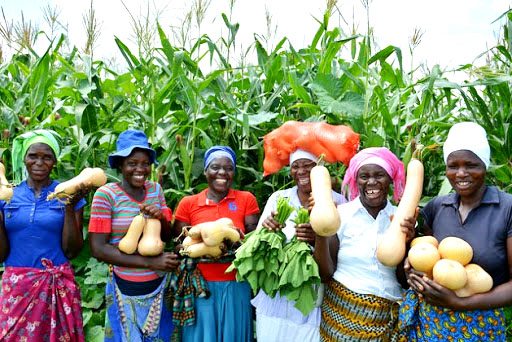Women in Nigeria play a significant and multifaceted role in farming, contributing to the agriculture sector in numerous ways. According to a report on the website of the United Nations Food and Agriculture Organisation (FAO), below are contributions of women to farming:
1. Labour force: Women make up a substantial portion of the agriculture labour force in Nigeria. They are involved in activities such as planting, weeding, harvesting, and post-harvest processing.
2. Food production: Women are responsible for growing a significant portion of Nigeria’s food crops, including staples like cassava, yams, maize, and vegetables. Their contributions are vital for food security.
3. Livestock management: Women are also actively engaged in livestock farming, tending to poultry, goats, and small ruminants. This diversifies agricultural production and provides additional sources of nutrition and income.
4. Processing and value addition: Women often engage in post-harvest activities such as cleaning, drying, and processing crops. They transform raw agricultural products into marketable goods, adding value to the products.
5. Seed preservation: Women play a role in preserving traditional seed varieties and ensuring crop diversity, which is essential for resilient farming systems.
6. Access to markets: Many women farmers are involved in marketing and selling agricultural produce. They often operate in local markets by contributing to rural and regional economies.
7. Household nutrition: Women ensure that their families have access to nutritious food by growing a variety of crops and managing household gardens.
8. Community development: Women often lead or participate in agricultural cooperatives and self-help groups. These organisations empower women, enable them access resources, and collectively address common challenges.
9. Sustainable farming practices: Women frequently adopt sustainable and organic farming practices that emphasise soil conservation, crop rotation, and minimal chemical use.
10. Climate resilience: Women often develop innovative strategies to cope with climate change, such as water management, drought-resistant crop varieties, and sustainable land-use practices.
11. Education and training: Women farmers actively seek agricultural education and training, empowering themselves with knowledge and skills to improve farming practices.
12. Financial management: Women are skilled at managing household finances, including budgeting for agricultural inputs and investments in farming activities.
13. Empowerment: Women’s involvement in agriculture contributes to their economic empowerment and increased decision-making power within households and communities.


